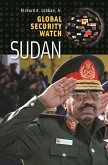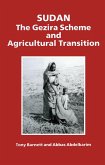This book provides an overview of contemporary issues in Sudan, Africa's largest nation, examining the country's history and current scene to help readers develop a deeper understanding of how much Sudan matters in today's world. With deep connections to the Sahel and savanna to the west, the African world to the south, the Horn of Africa to the east, and the Middle East to the north, Sudan is important strategically, legally, geopolitically, and militarily-but too often overlooked, or underestimated. Sudan, the country of residence of Osama bin Laden for six years, has played, and will continue to play, a significant role in worldwide security matters. An analysis of the causes, resolutions, and implications of the ongoing Sudanese conflicts (including the genocide in Darfur), this book is essential reading for policymakers, researchers, and students alike. This book considers Sudan's historical foundations, examining how the agendas of countries to the south, east, and north have influenced Sudan's people and government. The author also explains the origins and context of the Darfur conflict, laying out possible steps toward a resolution. Questions concerning Sudanese oil-where is it? how much is there? to whom does it belong?-help focus any discussion of Sudan's emerging importance in the contemporary world. Other issues-such as the influence of Islamism or the Sudanese activities of the Arab League, China, or the African Union-underline the uncertainties that confront the people of Sudan today.
Bitte wählen Sie Ihr Anliegen aus.
Rechnungen
Retourenschein anfordern
Bestellstatus
Storno









